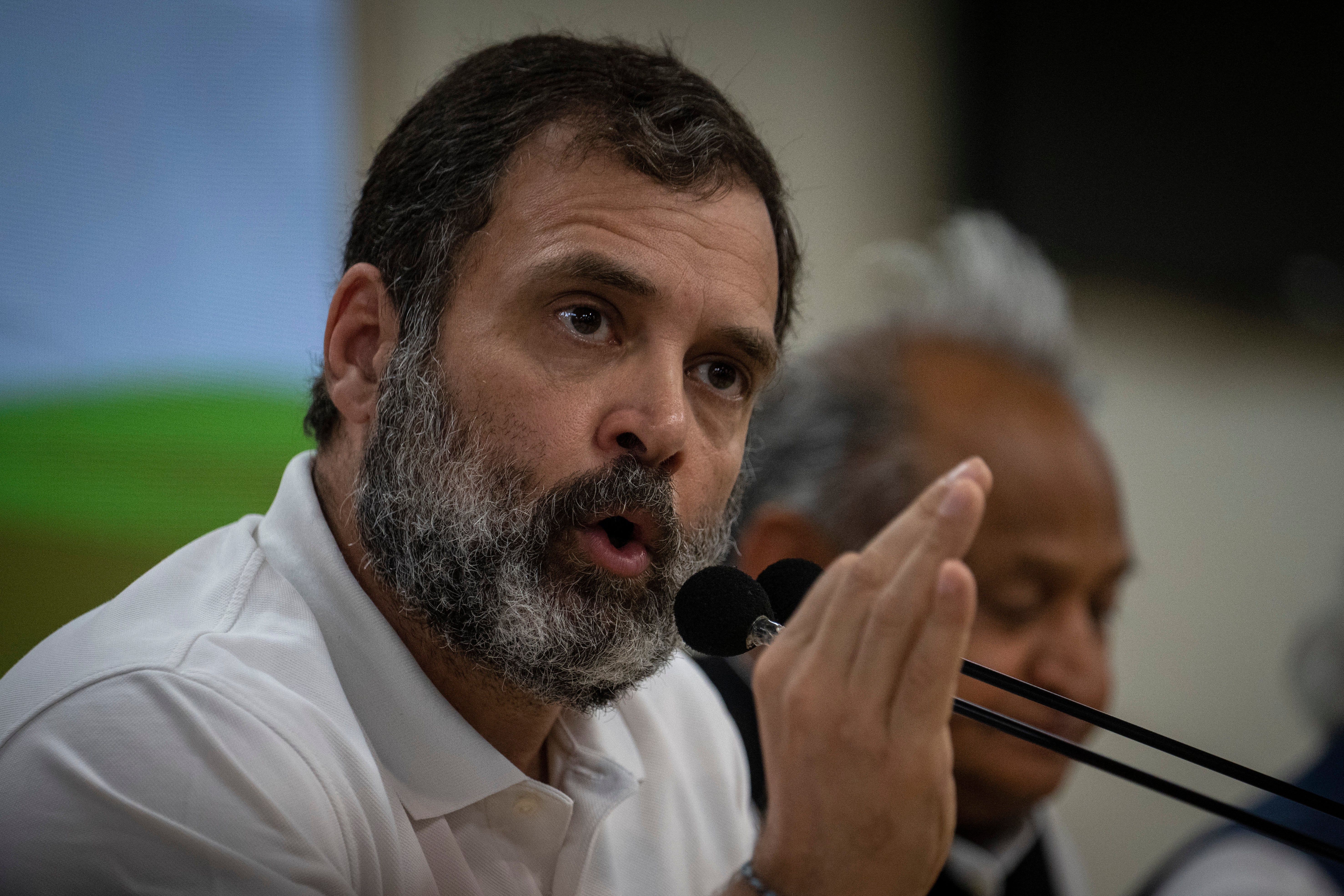Rahul Gandhi, Indian opposition leader, reinstated as lawmaker days after top court's order
India’s top opposition leader Rahul Gandhi has been reinstated as a lawmaker in Parliament three days after the country’s top court halted his criminal defamation conviction for mocking the prime minister’s surname

India’s Parliament on Monday reinstated top opposition leader Rahul Gandhi as a lawmaker three days after the country’s top court halted his criminal defamation conviction for mocking the prime minister’s surname.
His reinduction as a member of Parliament is likely to strengthen the opposition’s effort to corner Narendra Modi’s government ahead of a no-confidence motion this week over deadly ethnic violence that has roiled India’s northeastern state of Manipur for more than three months.
A fierce critic of Modi and his main challenger in the 2024 polls, Gandhi was ousted from Parliament after his conviction by a magistrate’s court in March. The Supreme Court stayed his conviction Friday, which means it is temporarily halted while the court goes into Gandhi’s appeal in detail before issuing a final ruling.
The court’s order also means that Gandhi will be able to contest next year’s general elections unless a final court decision goes against him.
The defamation case involved comments Gandhi made in a 2019 election speech. Gandhi asked, “Why do all thieves have Modi as their surname?” He then referred to three well-known and unrelated Modis: a fugitive Indian diamond tycoon, a cricket executive banned from the Indian Premier League and the prime minister.
The case was filed by Purnesh Modi, who is a member of Modi’s Bharatiya Janata Party in Gujarat state but is not related to the prime minister.
Gandhi was sentenced to two years in prison but the court suspended his prison sentence in April. The conviction was upheld by the Gujarat state High Court so he filed an appeal in the country’s Supreme Court last month.
The case against Gandhi, the great-grandson of Jawaharlal Nehru, India’s first prime minister and scion of the dynastic Congress party, was widely condemned by opponents of Modi as the latest assault against democracy and free speech by a government seeking to crush dissent. The speed of his removal from Parliament shocked Indian politics.
India, with 1.4 billion people, is the world’s largest democracy. However, Modi’s critics say democracy has been in retreat since he came to power in 2014. They accuse his government of pursuing a Hindu nationalist agenda. The government denies that, saying its policies benefit all Indians.
The Nehru-Gandhi family has produced two other prime ministers. Rahul Gandhi’s grandmother, Indira Gandhi, was assassinated while in office, as was his father, Rajiv Gandhi, after he left office.
Bookmark popover
Removed from bookmarks